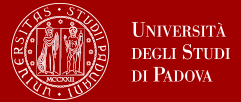Biomelucar diagnostics, pharmacogenetic and toxicogenomic laboratory
Pharmacogenetics is responsible for investigating genetic factors that cause patients to respond differently to drugs. In other word, Pharmacogenetics is the ability to personalise drug treatments to the specific characteristics of a patient. The right drug for the right patient.
The Biomolecular diagnostics unit's specialist examinations include:
- End-point PCR assessment and Sanger sequencing of proto-oncogene c-KIT mutations in canine and feline mast cell tumors. These tests are useful to determine the most suitable chemotherapy protocol for patients with mast cell tumor.
- PARR testing of biopsy and citological samples (formalin-fixed, paraffin-embedded) to detect a clonal lymphoid population. This test allows to differentiate between a reactive lymphocyte population and a neoplastic one, in addition to being used to assess the minimal residual disease after chemotherapy is administered in patients with lymphoma.
- MDR1 genotyping in dogs using a real-time PCR assay with probes. This assay is helpful to determine the patient's drug sensitivity and is recommended among particularly susceptible dog breeds, such as collie, border collie, Australian shepherd and crossbreeds.
Unit's staff is composed as follows:
- Prof. Mery Giantin (Head of unit)
- Prof. Mauro Dacasto
- Dott. Rosa Maria Lopparelli
The unit's services are available Monday through Friday, 8.30 a.m. - 6.00 p.m.
Submitting samples
Samples (which can also be delivered by courier) must be submitted after telephoning or writing an e-mail.
Contact details for submitting samples:
Profs Dacasto/Giantin
Tel. +39 049 827 2946
E-mail: diagnosticavetfarm.bca@unipd.it
If samples are submitted via courier, please deliver to the following address:
Profs Dacasto/Giantin
c/o Dip.to Biomedicina Comparata e Alimentazione
Edificio Museo- Laboratorio 2° Piano
Viale dell'Università 16, Agripolis
35020 Legnaro - Padova (Italy)
All VTH activities are particularly relevant for veterinary teaching. In this regard, it shall be noted that fourth- and fifth-year students of the single cycle degree course in veterinary medicine may be present as teachers and other veterinarians perform clinical activities.






